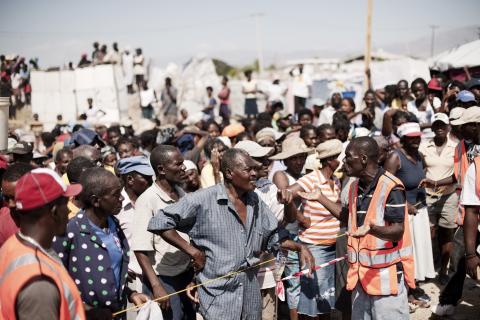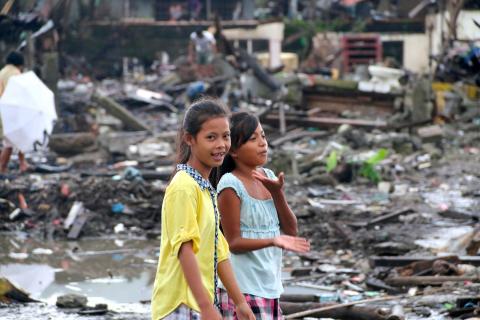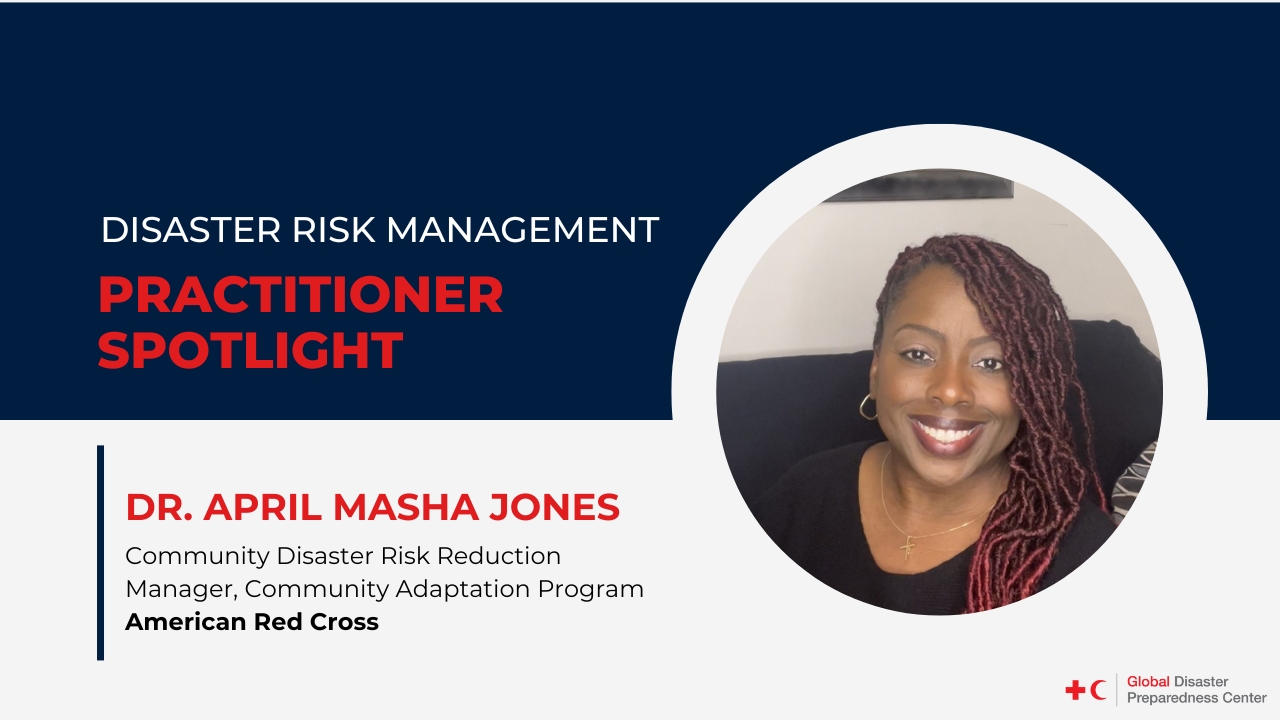Humanitarian diplomacy in action

The following story was written by Lena Kang, Knowledge Management Intern, GDPC, based from an interview with Wendy Ward, International Policy & Relations Sr. Advocacy and Policy Program Officer at the American Red Cross.
ARC advocacy
Humanitarian diplomacy in disaster preparedness plays a key role in bringing critical issues to the forefront of the humanitarian agenda. Through advocacy, communication, and negotiation, humanitarian diplomacy aims to persuade and influence key decision-makers to act in the interest of vulnerable populations. For Wendy Ward, advocating for these issues on Capitol Hill constitutes a large part of her work at the American Red Cross (ARC) National Headquarters in Washington, DC. As the International Policy & Relations (IPR) Sr. Advocacy and Policy Program Officer, Wendy developed and implements International Services’ advocacy plan to educate policymakers to strengthen international humanitarian assistance for people who are vulnerable to natural and manmade disasters, and health crises.

She is currently advocating for increased funding for the U.S. Agency for International Development’s Office of U.S. Foreign Disaster Assistance (USAID/OFDA) and funding for the Centers for Disease Control and Prevention (CDC) related to measles and rubella control and elimination. Wendy explains that humanitarian assistance requires increased and sustained funding, especially as the international community is seeing “an explosion of large-scale, complex, and protracted emergencies that seemingly have no end, in addition to compounding issues like population growth, climate change and urbanization.” In a world of competing priorities and demands, Wendy and the IPR team aim to influence and give voice to the humanitarian agenda by identifying critical issues and advocating solutions before the government.
ARC networking
More generally, the IPR team works to develop and advocate around the International Services positions on humanitarian issues, as well as strengthen ARC’s engagement in the Red Cross and Red Crescent (RCRC) global network. Wendy states that the ARC’s status as an auxiliary to the US government “provides an opportunity for the organization to engage in humanitarian diplomacy in a way that is unique among NGOs in the domestic community.” In addition, ARC’s membership in InterAction, a large consortium of national and international NGOs in DC, allows for a stronger voice to carry through in its advocacy work. At the same time, “the American Red Cross is hands-deep in local communities around the world through its partnerships with National Societies, which provide access and opportunities to participate in research and evidence-gathering,” both of which are crucial components of effective advocacy before decision-makers.
Research and evidence-gathering

Within the International Federation of Red Cross and Red Crescent Societies (IFRC), Wendy explains that there is a drive to conduct more research in disaster-prone regions to identify and respond to issues that normally go unnoticed by the media. For example, gender-based violence (GBV) generally receives less attention within the context of natural disasters compared to armed conflict situations, and even less so in smaller-scale disasters. “We hear about the horrors that take place in IDP camps in Haiti, but what happens to the women, girls, and boys after local disasters that are occurring in places we don’t ever hear about in the news – local disasters and seasonal hazards that are happening on a smaller scale remain largely silent – there’s a whole gender dynamic that demands more attention.”
Through the RCRC network’s deep reach in local communities, Wendy states that the IFRC is seeking ways to collect evidence and research what happens in these situations “in order to further augment strategies that are taking place to prevent, mitigate, and respond to GBV.” Such initiatives will allow National Societies to address and invest in local needs characterized by long-term development and low-visibility. Recognizing the importance of gendered perspectives in Disaster Risk Reduction (DRR) and armed conflict, the RCRC Movement has incorporated gender as a thematic focus for the 32nd International Conference of the Red Cross and Red Crescent, which will be held in December 2015 in Geneva.
In addition, the IFRC and National Societies have laid out the IFRC Strategic Framework on Gender and Diversity Issues 2013–2020, which complements the IFRC Strategy on Violence Prevention, Mitigation and Response 2010–2020. One of the outcomes that form the basis for operationalizing the IFRC gender framework includes the “systematic incorporation of gender and diversity in all programs, services and tools (covering the full management cycle from assessment to planning, monitoring, evaluation and reporting)” (3). Lastly, research and evidence-gathering feeds into RCRC’s overall work of advocacy and humanitarian diplomacy by meeting the demand for evidence among decision-makers at all levels.
Lessons Learned :
Benefits of humanitarian diplomacy
In the vision of Strategy 2020, humanitarian diplomacy will bring:
- greater access to help people who are vulnerable, and earlier attention to situations and causes of vulnerability
- deeper public, governmental and partner support, and more resources for addressing vulnerabilities
- stronger recognition of community perspectives in the international humanitarian and development system and cooperation arrangements
(Source: Disaster risk reduction: a global advocacy guide)
For more information on gender-balanced approaches to disaster risk reduction, see Gender Perspective: Working Together for Disaster Risk Reduction. This publication, facilitated by the UN/ISDR secretariat, serves as “an introduction to the importance of mainstreaming gender issues in risk and vulnerability reduction.” From its diverse collection of case studies, the report “showcases women’s valuable contributions to community resilience” while highlighting good practices and lessons learned in awareness-raising and capacity-building.
Supporting Materials :
 Disaster Risk Reduction: A Global Advocacy Guide,
Disaster Risk Reduction: A Global Advocacy Guide,  IFRC Strategic Framework on Gender and Diversity Issues,
IFRC Strategic Framework on Gender and Diversity Issues,  IFRC Strategy on Violence Prevention, Mitigation and Response,
IFRC Strategy on Violence Prevention, Mitigation and Response,  Gender Perspective: Working Together for Disaster Risk Reduction
Gender Perspective: Working Together for Disaster Risk Reduction


